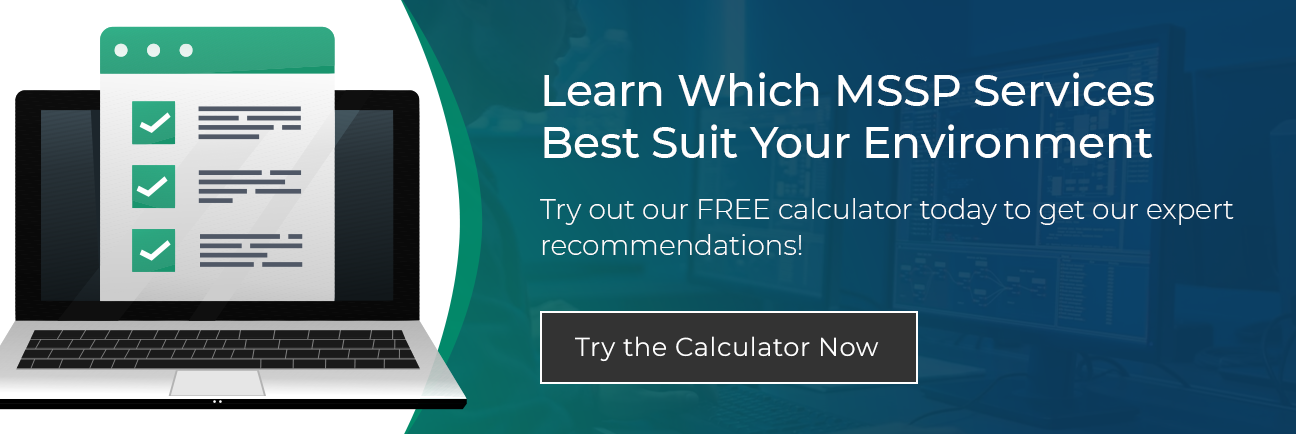Why Multi-Factor Authentication Is Vital to Securing Your Enterprise
In a world where cybersecurity threats, hacks, and breaches are exponentially increasing in frequency and sophistication, it’s more important than ever to take actionable steps to mitigate the risk these attacks have on your enterprise. One surefire method to further protect your network and assets is to implement multifactor authentication policies; also known as MFA security or 2FA for shorthand reference, utilizing this technology is proven to radically reduce attacks levied against your business.
In fact, a 2019 report from Microsoft concluded that multifactor authentication effectively blocks 99.9% of automated attacks. Since they fight more than 300 million fraudulent log-ins every day, it’s safe to say that Microsoft is the perfect example of how well this technology works. Let’s dive into what MFA security is and how it can bolster your cybersecurity posture.
What Is Multi-Factor Authentication?
Multi-factor authentication is an authentication method that necessitates a user to verify their identity with at least two forms of identification. What constitutes a form of identification can vary and usually involves a combination of the following:
- Something you know: a password or PIN
- Something you are: a fingerprint or other form of biometric identification
- Something you have: a trusted smartphone or device that can validate your identity via confirmation codes
Typically, basic systems will only require usernames and passwords in order to access whatever information a user is trying to get into; with multifactor authentication, the standard log-in information will be used in conjunction with another layer of verification, such as entering a one-time temporary passcode that is sent to a trusted device.
Overall, 2FA ensures that an account can’t be accessed without double-checking the identity of the user with one or more additional forms of credentials.

Why Passwords Alone Aren't Enough
Let’s start with some troubling statistics about passwords:
- The password “123456” is used by 23 million account holders.
- An analysis of more than 15 billion passwords reveals the average password has eight characters or less.
- A single password is used to access five accounts on average.
Passwords are essential for nearly everything we need access to, especially in this age of the Internet and the profound integration of smart devices and the Internet of Things.
However, as these statistics illustrate, passwords alone are simply not secure enough to provide ample security. When millions of accounts can be accessed with the same, simple six-digit password and that one password might be able to access five separate accounts, it’s only a matter of time before a person’s entire digital presence is compromised.
Essentially, password practices are still far too basic for them to be effective on their own; that’s why MFA security is necessary for better cybersecurity protection.
The Importance of MFA Security
Multifactor security is vital to securing your enterprise because it ensures that malicious actors can’t access your network or assets due to the additional layer—or layers—of security that MFA practices offer.
With MFA cybersecurity practices in place, cybercriminals would have to know a person’s username, password, and have access to the person’s phone, for example. With the ubiquity of smartphones and how essential they are to our lives in the 21st-century, a missing phone would be immediately noticed and reported.
Following this example of MFA security necessitating a smartphone, the device itself would presumably be locked, which is yet another layer of security for criminals to try and hack into. Basically, it would trigger a long line of obstacles for virtual thieves and hackers to access your network or assets with 2FA policies established and followed.

Benefits of Utilizing Multiple Access Controls
If it wasn’t already clear, there are many advantages to utilizing multiple access controls in your enterprise, including:
MFA’s Flexibility in the Evolving Work Environment
With the pandemic continuing to force businesses to shift and adapt to different operations, like remote operations, it’s essential to keep your company’s remote workers protected from a cybersecurity perspective. MFA security enables your employees to access all of their usual required sites and accounts but with added protection. This means that both your employee accounts and company assets are further secured against malicious activity, such as fraudulent log-ins.
Multifactor Authentication Doesn’t Disrupt the User Experience
As we learned earlier, passwords are often one and the same—so it’s likely that your employees’ passwords aren’t exactly Fort Knox, and necessitating lengthy passwords might result in poor security practices like writing down passwords because they’re too difficult to remember.
With multifactor authentication, you can gain peace of mind knowing that even if your accounts don’t have the strongest passwords, they’re fortified against cybercriminals since multiple forms of identification are needed. This reduces the amount of work that your internal IT team needs to spend addressing employee access issues like password resets and empowers them to focus on more strategic tasks.
MFA Security Significantly Reduces Risk
A security breach caused by anything, but especially if caused by a flimsy user password, would have significant consequences for your company and your clients; after all, the average security breach cost rose to more than $4 million in 2021. Passwords and general bad practices regarding passwords are obviously a huge risk for enterprise security; that’s why implementing MFA practices would significantly reduce cybersecurity risk at your organization.
Partner with Compquip to Manage Your Enterprise’s Cybersecurity Posture!
For more than four decades, Compuquip has been entrusted to secure and strengthen cybersecurity practices across dozens of enterprises. We provide a wide range of products and services, including Managed Security Services, firewall automation, virtual CISO services, and more.
Contact us today to learn how we can fortify your organization’s cybersecurity posture today!

